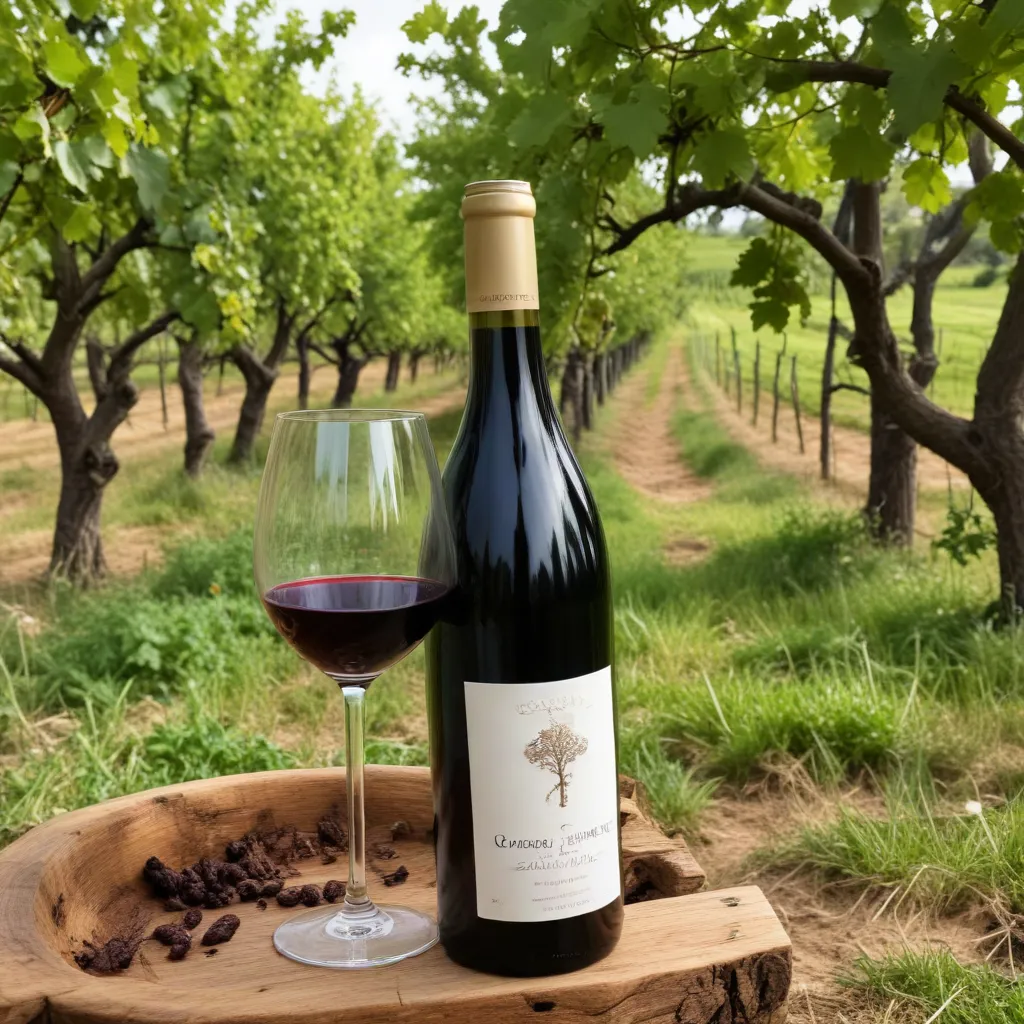
The Sommelier’s Guide to Navigating the World of Organic and Biodynamic Wines
As a hospitality and wine expert for the Wine Garden Inn, I’m thrilled to share my insights on the captivating realm of organic and biodynamic wines. These sustainable winemaking practices have gained tremendous traction in recent years, capturing the hearts and palates of discerning wine enthusiasts worldwide.
Understanding Organic Winemaking
At the core of organic viticulture lies a deep commitment to environmental stewardship. Organic vintners eschew synthetic pesticides, herbicides, and fertilizers, opting instead for natural, earth-friendly alternatives that nurture the soil acidity and ecosystem of the vineyard. This holistic approach not only benefits the land but also results in grapes that are free from harsh chemical residues, allowing the pure, unadulterated flavors of the terroir to shine.
The organic certification process is regulated by governing bodies, such as the USDA in the United States and the European Union, ensuring that wines bearing the organic seal adhere to strict guidelines. These include prohibiting the use of genetically modified organisms (GMOs), limiting the addition of sulfites, and maintaining meticulous records of all vineyard and winemaking practices.
Exploring Biodynamic Winemaking
An intriguing step beyond organic viticulture is the realm of biodynamic winemaking, which views the vineyard as a self-sustaining, interconnected organism. Biodynamic vintners take a deeply holistic approach, considering the lunar cycles, celestial influences, and the integration of diverse flora and fauna within the vineyard. This philosophy is rooted in the teachings of Rudolf Steiner, the founder of the biodynamic movement.
Biodynamic practices involve the use of specialized preparations made from natural ingredients, such as compost, to enhance the soil’s fertility and the overall health of the vines. These preparations are applied according to the rhythms of the moon and the seasons, with the goal of creating a harmonious, self-regulating ecosystem. Wines produced under the Demeter certification, the leading biodynamic certification body, showcase a remarkable expression of their terroir and unique sensory profiles.
Navigating the Organic Wine Landscape
As a sommelier, I’ve navigated the intricate web of organic wine regulations and labels, and I’m here to share my insights to help you make informed choices.
Recognizing Organic Wine Labels
When it comes to organic wines, it’s essential to understand the various certifications and claims that appear on the label. In the United States, the USDA Organic seal indicates that the wine was produced from organically grown grapes and adheres to strict guidelines, including the use of approved sulfite levels. In the European Union, the EU Organic logo denotes wines that have been certified organic according to EU regulations.
Additionally, some wineries may choose to pursue other certifications, such as Demeter for biodynamic wines or Regenerative Organic Certified (ROC), which encompasses an even higher level of environmental and social responsibility.
Tasting Notes for Organic Wines
Organic wines often exhibit a distinct flavor profile, with a focus on the pure expression of the grape’s varietal characteristics and the vineyard’s terroir. You may notice brighter acidity, more pronounced minerality, and a subtle complexity that can be elusive in conventionally produced wines. The absence of synthetic additives can also contribute to a more natural, unfiltered mouthfeel and a longer, more textured finish.
Delving into Biodynamic Wine Styles
As you explore the world of biodynamic wines, you’ll be captivated by their unique sensory qualities and the profound connection they possess with the land from which they originate.
Characteristics of Biodynamic Wines
Biodynamic wines often showcase a heightened sense of place, with the terroir’s distinct fingerprint clearly imprinted on the liquid in the glass. The use of indigenous yeasts, minimal intervention, and the integration of the vineyard’s ecosystem contribute to a remarkable depth of flavor and complexity. You may encounter vibrant acidity, delicate aromas, and a silky, almost ethereal mouthfeel that sets biodynamic wines apart.
Pairing Biodynamic Wines with Food
The inherent versatility of biodynamic wines makes them a delightful companion for a wide array of culinary delights. Their balanced acidity and nuanced flavors can seamlessly complement dishes that highlight seasonal, locally sourced ingredients. Whether you’re pairing a biodynamic Riesling with a fresh seafood platter or a bold, earthy Syrah with a hearty, slow-cooked stew, the interplay of the wine and the food will create a harmonious and memorable dining experience.
The Sommelier’s Recommendations
As a passionate advocate for sustainable viticulture, I’m excited to share some of my top organic and biodynamic wine recommendations that have captivated my palate and imagination.
Top Organic Wine Producers
One standout organic producer is Tablas Creek Vineyard in California’s Paso Robles region. Their commitment to biodynamic practices and the use of Rhône-style grape varieties, such as Grenache and Mourvèdre, results in wines that are both intellectually engaging and immensely pleasurable to drink. Another organic gem is Bonterra Organic Estates, a leader in California’s organic wine movement, crafting exceptional Cabernet Sauvignon, Chardonnay, and Merlot that showcase the depth and purity of organic viticulture.
Showcasing Biodynamic Wine Selections
When it comes to biodynamic wines, I’m particularly enamored with the offerings from Domaine Leflaive in Burgundy, France. Their Puligny-Montrachet and Meursault bottlings are true masterpieces, capturing the elegance and minerality that are the hallmarks of biodynamic winemaking. In the Finger Lakes region of New York, Hermann J. Wiemer Vineyard has been a pioneer in biodynamic viticulture, crafting exceptional Rieslings that dance on the palate with their vibrant acidity and captivating floral aromas.
As you embark on your journey through the world of organic and biodynamic wines, I encourage you to approach each bottle with an open mind and a willingness to explore. These sustainable winemaking practices not only benefit the environment but also result in wines that are a true reflection of the land, the seasons, and the passion of the vintner. Discover the remarkable flavors and stories that lie within each glass, and let your palate be your guide on this captivating oenological adventure.
